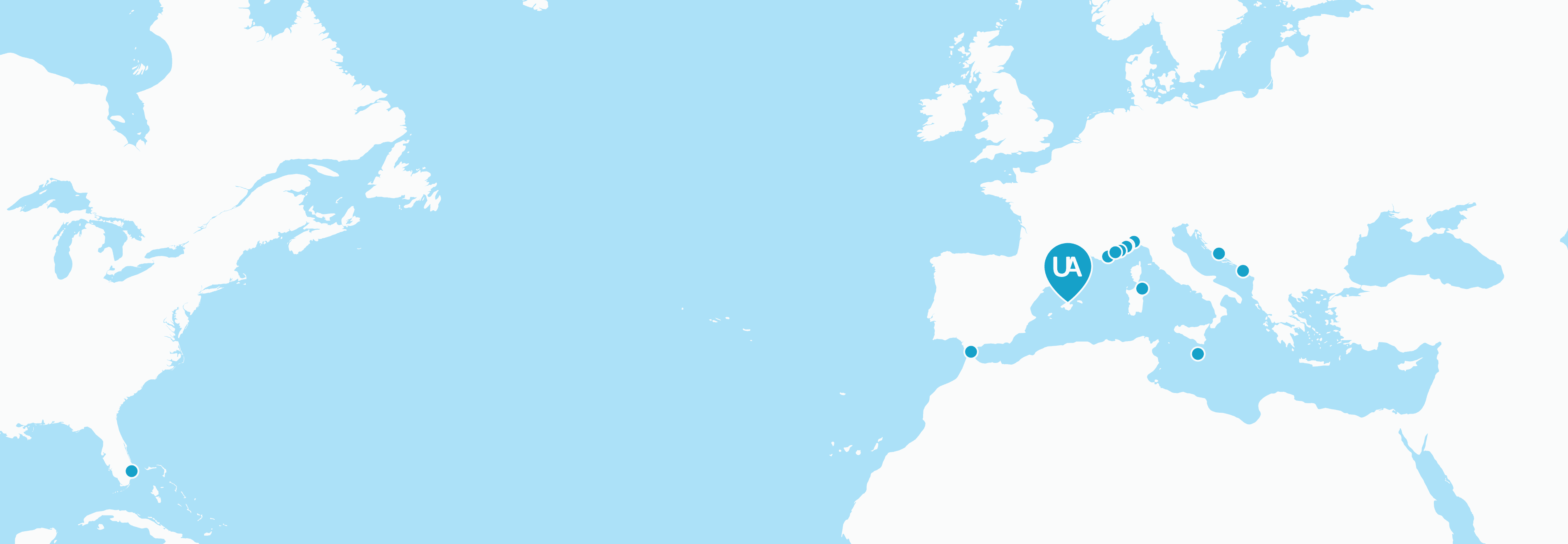5th Oct 2020
What yachties did next … Chanel Marais from Virtual Yacht Assistant
We all know how valuable it is to learn from others, especially when it comes to navigating the world of yachting (pun intended!). Whether you’re looking to take your first tentative steps onboard a Superyacht or are considering your options for life after yachting, advice from those who have ‘been there and done that’ is priceless.

Former Stewardess and Interior Manager Chanel Marais has an impressive resume when it comes to yachting and luxury hospitality, and she is now helping new and experienced crew via her recently launched business Virtual Yacht Assistant (VYA).
UAM sat down with Chanel to learn more about her incredible career to date. We were particularly keen to find out how she combined her yachting and hospitality experience with her entrepreneurial spirit to win TV show awards, run one of Cape Town’s ‘Top 3 best food trucks’ and launch VYA.
You have had an amazing career already. What prompted you to start another business venture after Salty Flames?
I knew when I started Salty Flames there was a determination and dedication to what I was doing and the success I wanted to achieve. People who work in leadership and entrepreneurial studies call it the entrepreneurial internal lotus. However, I knew that for me, to be truly great at running a business, I needed to have a passion and unrivaled enthusiasm for the work I was doing, and what better than the field I had spent 10+ years gaining valuable experience and knowledge in. I had studied Hotel and Restaurant Management, which helped prepare me for the yachting industry. I had the foundations for starting out and my passion was there before I even joined the industry. It was a no-brainer figuring out what I wanted to do for my next business venture, and I’m so glad I took a leap of faith.
What was the biggest surprise when you first moved back on shore?
The difficulty of breaking the ‘spending’ mindset. Although I worked within budgets onboard, if you needed it, you purchased it without too much thought behind it. Coming ashore and walking into a shop, having to think twice whether it’s a ‘need’ or a ‘nice to have’, was very difficult to adjust to. I know, 1st world problems!
What, if anything, do you wish you’d done before stopping working onboard (to help with your transition back onshore)?
I wish I’d had everything already in place, so that when the move ashore finally came about, I could settle in and start taking action in the business and be ready to start earning an income almost from the get-go. Unfortunately, this wasn’t possible because of the intense demands of my work at the time. I ended up making the decision to leave in order to get the ball rolling. And that’s why I now help yacht crew who are looking to exit the industry with their strategy to move ashore, in order to overcome such pain points. I help them plan and implement the research required before moving ashore.
What do you wish someone had told you before starting out in the Superyacht industry?
I wish I knew how anxiety can creep up on you when subjected to tight time constraints, busy programs and onboard politics. I had no knowledge of that nor was I aware of any avenues of support regarding anxiety. As a result, I had a difficult time trying to identify what I was going through and how best to handle it. However, because I know I am not an isolated case, and the true extent of how anxiety affects crew is only now coming to light, I have dedicated much time to raising awareness around this and providing simple but effective steps to help manage it better.
Is there anything you would have done differently when setting up your own company?
I had always believed that anyone offering products or services similar to yours is competition. It was only when I delved into some incredible sales courses that I realised collaboration is not competition. It changed my mindset to not see other businesses as the competition but rather a means of support and an opportunity to learn and develop my own business products and position. I have since teamed up or offered my own supportive services to what I previously saw as my competition, and it has created a sense of community and respect amongst us.
If you had to describe VYA in three words what would they be?
- Facilitate, Educate and Integrate
- Supportive, Motivational and Mentorship
I have selected 2 sets of 3 words because the main purpose of VYA is to facilitate crew entering and exiting the industry, through educating them on how to be prepared with planned action steps and ultimately integrating them into their set objectives. However, this is only successfully achieved by being supportive, continuously motivating and with a mentorship approach.
What are you most excited about right now when it comes to VYA?
VYA will be branching out on some consulting projects located in South Africa but related to the yachting industry, and I look forward to sharing the progress of these projects as soon as proof of evidence is possible. In the meantime, VYA will continue to focus on extending its reach to crew either trying to enter or exit the industry to improve the understanding, motivation and quality of results set out by their objectives.
Crew can download the FREE e-book from VYA “First Three Months in Yachting” HERE: https://www.virtualyachtassistant.com/first3monthsinyachting/




